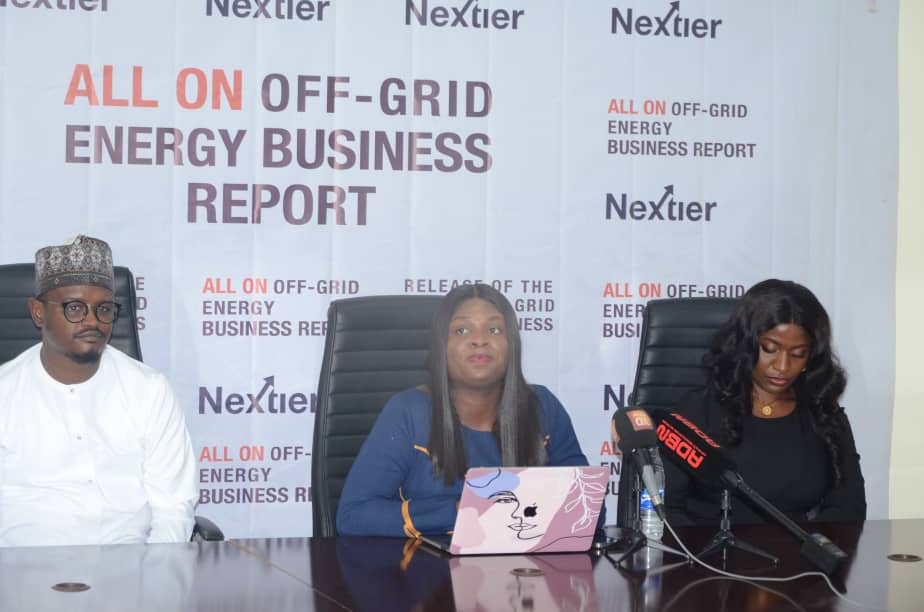•Says Nigerians spend $14bn annually on PMS
Gift Wada
The off-grid energy sector in Nigeria holds significant potential to alleviate the country’s electricity crisis and provide decentralised and sustainable energy solutions. However, despite the numerous benefits mini-grids offer, their development in the country remains hampered by policy and regulatory bottlenecks.
This is according to research funded by All On and conducted by Nextier, a multi-competency advisory firm, which visited 21 mini-grids in 21 communities spread across Nigeria
Ms. Folakemi Aletan, Program Manager, Nextier while presenting the report in Abuja on Tuesday stressed on the urgent need for policy reforms to scale up off-grid energy solutions in Nigeria.
She lamented that the total energy demand of many communities exceeds the supply provided by installed mini-grids, and nearly all rural mini-grids fail to meet the 24/7 energy requirements of these communities hence the need to scale up off grid energy.
“The national grid, which has experienced numerous collapses, continues to plunge the country into darkness and fails to reach remote and underserved areas. Consequently, Nigerians are compelled to spend around $14 billion annually on small petrol or diesel generators, which not only come at a high cost but also emit harmful pollutants,” she said.
“Over 75 percent of the electricity consumed in Nigeria is generated from diesel and petrol-powered generators, making them the most used source of non-grid power generation,” Aletan explained.
“Despite the potential of off grid energy, the sector has some constraints which includes Poor economy/low income or purchasing power of off-takers of electricity, Insecurity/vandalisation Low Literacy Level, access to capital by small businesses,” the report stated.
The report also stated the need for increase in investment in standardisation of solar PV system components installed in mini grids, increase in investment in business development support services to small businesses, increase in investment in batteries and other forms of electricity storage mechanism.

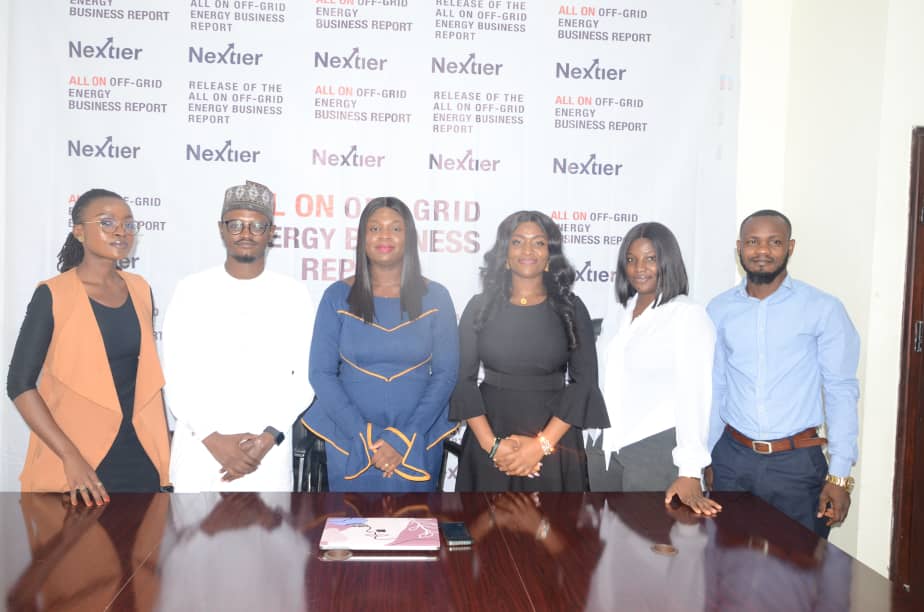
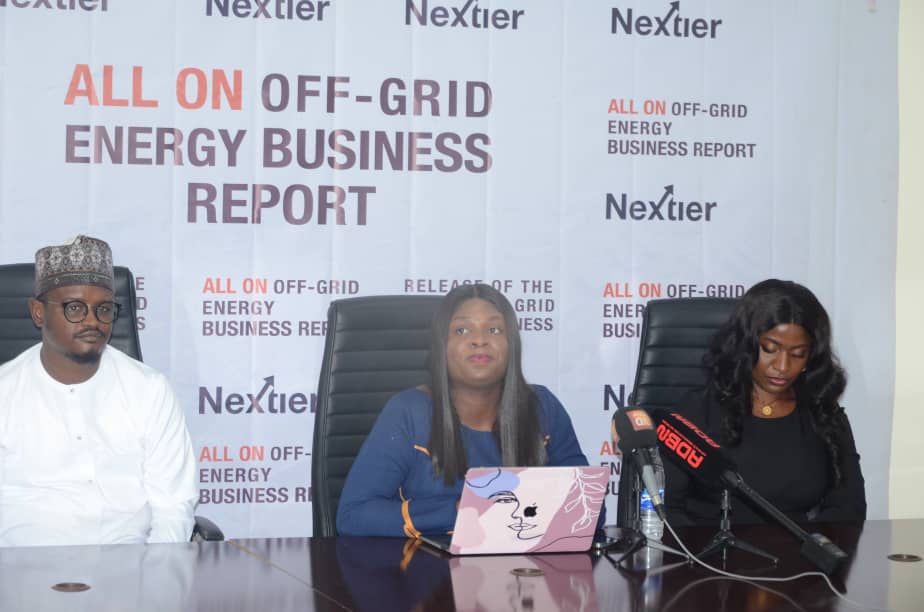
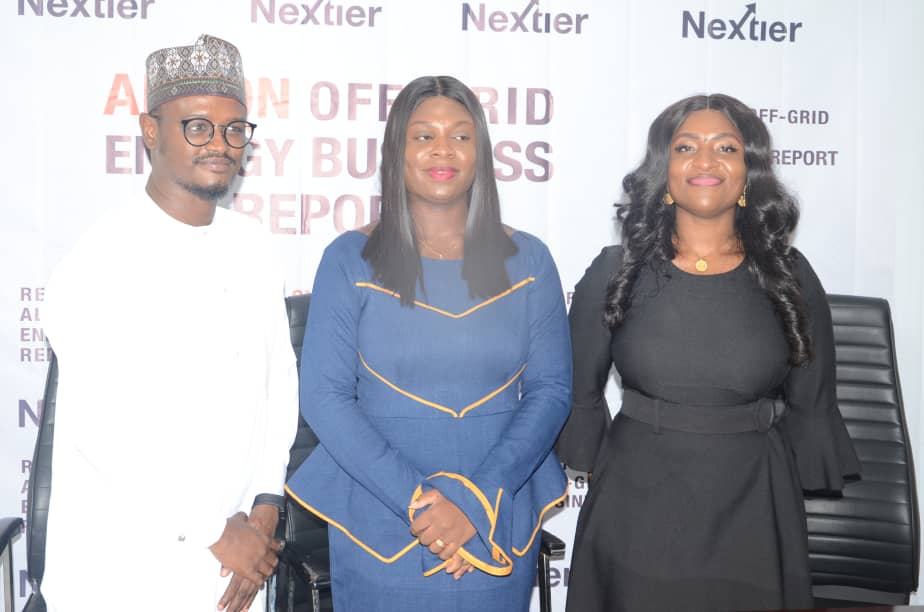
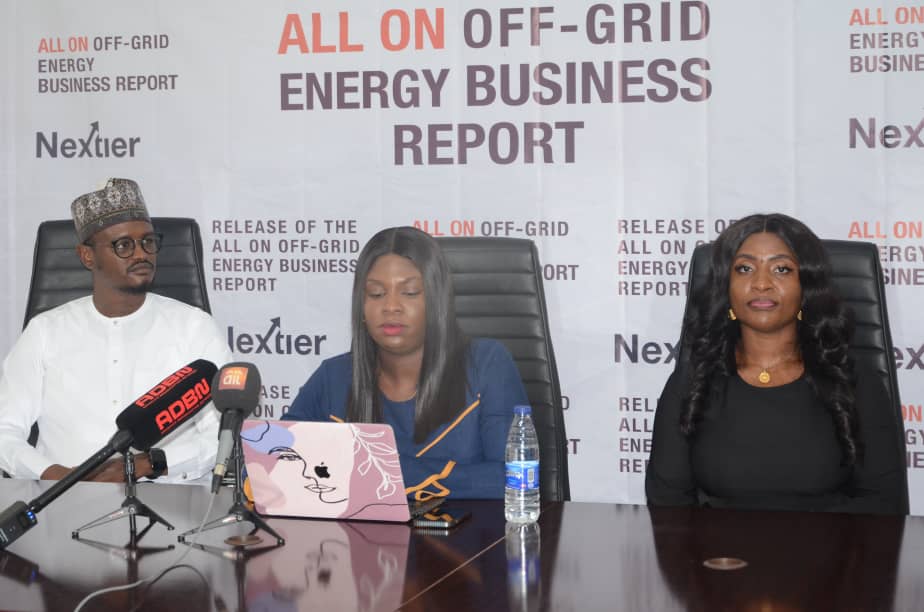
While presenting the report, Aletan advocated for policy review and harmonisation, incentives for renewable energy and off grid technology adoption and eliminating investment bottlenecks, more involvement of the federal government in supporting off grid power projects. Others are cross-sectoral policies to boost power affordability for end users and meeting the federal government climate change obligation.
Ms. Caroline Eboumbou, Chief Executive Officer, All On, assured commitment to driving sustainable energy solutions, highlighting the report’s role as a vital resource for stakeholders dedicated to transforming Nigeria’s energy sector.
“Our commitment to driving sustainable energy solutions is stronger than ever, and this report serves as a vital resource for stakeholders, who like us, are dedicated to transforming Nigeria’s energy sector. Together, we can harness the power of innovation and collaboration to ensure a brighter, greener future for all,” she said.
Ms. Onyebuchi Odianjo, Communications Associate, All On, while commending Nextier for the Report, affirmed the need for increased contributions from international development agencies, donors, and investors to fuel the growth of the off-grid market and drive sustainable development.
“This report is not just a document; it is a call to action. By embracing these recommendations, we can stimulate interest and enable investments that will accelerate the deployment of off-grid and clean energy solutions across Nigeria,” Odianjo concluded.

